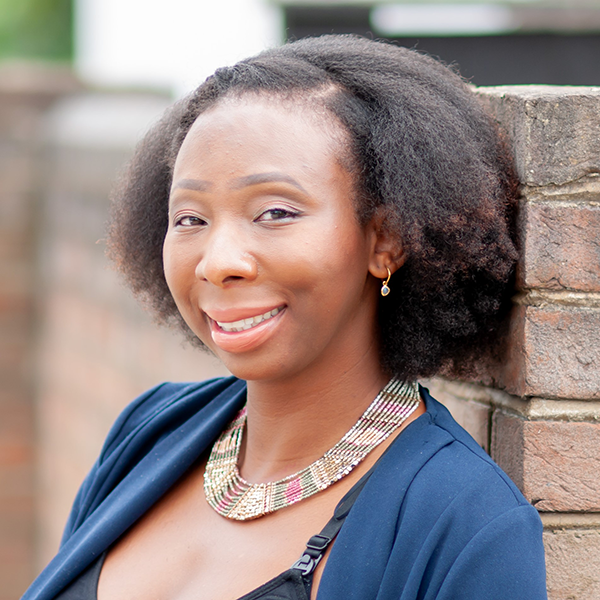The UK’s Worker Protection Act came into force last October; now is the time for all employers to act.
Somehow, I have unwittingly become part of the #sussexsquad, ie one of those people who spends an inordinate amount of time defending the Duke and Duchess of Sussex for, as Prince Harry put it, “stepping back” from being working royals and everything else in between. While I am happy to discuss this topic at any time (much to my husband’s chagrin), this is not the point of this blog post. Instead, I believe that Harry and Meghan provide an excellent case study on change in the workplace and how diversity and inclusion in their truest sense is of benefit to all.
The Sussexes' star power
Since Harry and Meghan announced their departure from being full-time working royals in January 2020, they have moved to California, set up Archewell Foundation and founded their own production company, as well as having netted lucrative contracts with Spotify and Netflix. According to Forbes, industry experts estimate that their Spotify three-year deal could be worth $15-18 million alone. And while they are not popular with the vast majority of the British press (and I would say this is an understatement), ITV has reportedly shelled out £1m to be able to air Harry and Meghan’s interview with Oprah, which is expected to attract Superbowl-level audience ratings. All of this while Meghan has been ranked the most popular royal globally and is pregnant with her second child!
Clearly, Harry and Meghan have a very different approach to operating as royals than the rest of the family. In my view, because of this they should have been embraced for their different perspective as opposed to being treated like pariahs. YouGov poll results from October 2020 show that the Royal Family is less popular among those 24 and younger, where there is a growing republican sentiment. However, Harry and Meghan have been shown to be popular with younger age groups; perhaps because they better reflect the zeitgeist – a mixed race, mixed culture couple who care about the environment, feminism, equality and all things that are often pejoratively referred to as being “woke”. I recall watching their wedding in shock as it was such a celebration of multiculturalism, unlike your usual royal affair.
Given Harry and Meghan’s clear star power, they would have been strong ambassadors for the British Royal Family, and the country as a whole, had they remained working royals. The Royal Family, like any other institution, has to ensure that it remains relevant to the public it purportedly serves so as to avoid being obsolete. Consequently, this is why I believe they provide an interesting case study for change in the workplace.
The uncomfortable truth about change – it’s often profitable
Most of us find change uncomfortable; whether it be new line managers, technology or modes of working – all are known to trigger stress in the workplace. This can cause people to respond negatively to change and the changemakers. However, we live in a time where change is almost a daily occurrence; with employers valuing adaptability as a key soft skill for their staff.
Further, we also all know of businesses that have failed due to their stringent adoption of the maxim: “If it ain’t broke don’t fix it.” As an example, I’m sure those who were executive board members of the now defunct Blockbusters continue to rue the day that they rebuffed Netflix in 2000. Further, according to a 2018 McKinsey report, there is a direct correlation between the diversity of global companies’ executive teams from a gender, ethnicity and culture perspective, and their improved financial performance. I would proffer that this is because there is an increased diversity of thought as people bring their personal experiences to the decision-making table, which is likely to result in innovative solutions to problem solving. It makes inherent sense to me that a diverse and inclusive workforce which reflects your client base is likely to perform better.
The shifting demographics of the UK
In light of the above, Meghan Markle's arrival to the Royal Family could have really helped ensure its relevance to future generations. For many, the arrival of a mixed-race royal was seen positively from the perspective of greater inclusion of non-white Brits in all sections of society, as well as changing attitudes. Unfortunately, the level of vitriol that Meghan Markle has been subjected to has not gone unnoticed, particularly I suspect by Black Britons, who continue to raise concerns about how they are truly viewed and treated by British society.
While the British population continues to become more diverse with time, having a couple that reflected the social mores and composition of the UK’s modern society would have been a valuable asset for the Royal Family, and the country as a whole. Instead, we now have a formidable couple whose mere presence is shining a spotlight on racism and classism within British society across the world. If the Royal Family is to continue to remain relevant, it needs to find and maintain a way to connect with modern Britain. The exclusion of two of its most progressive members (whoever’s fault this may be) will have only hindered their ability in this regard.
For many, the arrival of a mixed-race royal was seen positively from the perspective of greater inclusion of non-white Brits in all sections of society, as well as changing attitudes. Unfortunately, the level of vitriol that Meghan Markle has been subjected to has not gone unnoticed, particularly I suspect by Black Britons, who continue to raise concerns about how they are truly viewed and treated by British society.
Related Articles

Sexual harassment at work: what’s changing in 2026?

Creating psychological and challenger safety: a practical guide





